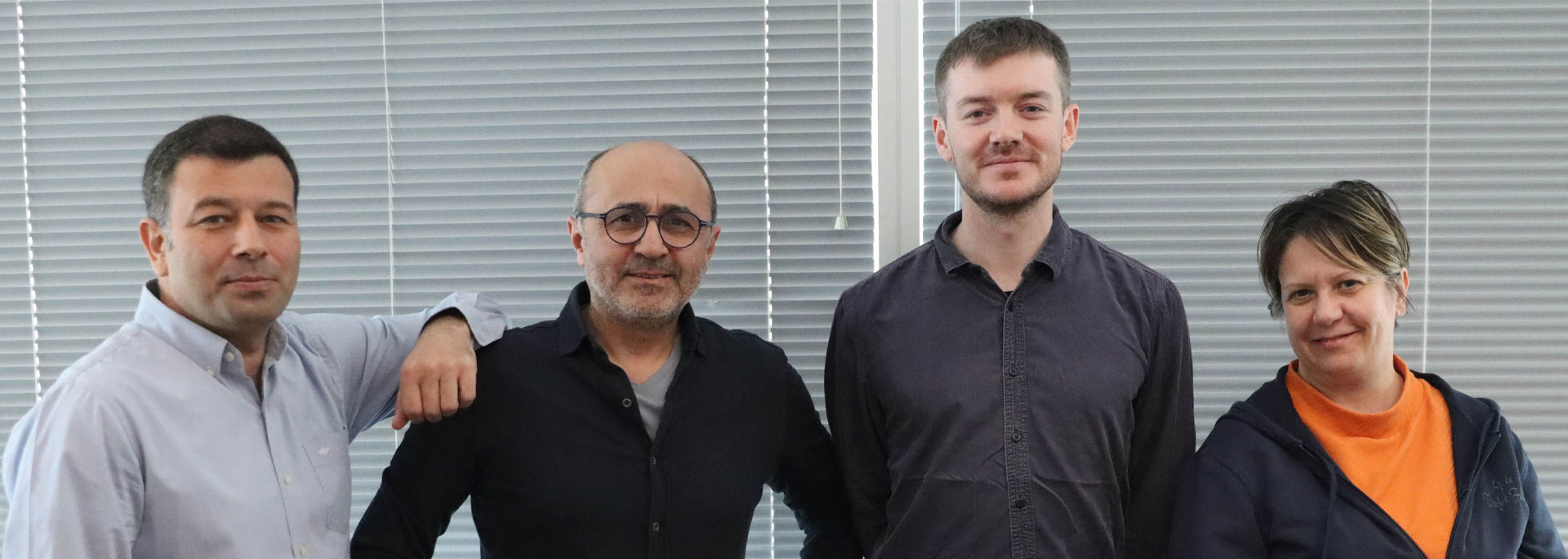The Walter Cronkite School of Journalism and Mass Communication at Arizona State University welcomed four Turkish journalist trainers from March 27-31 for a “Train the Trainers” workshop where the participants learned techniques to teach other reporters in Turkey.
The course was part of the Cronkite School’s CronkitePro initiative, which provides professional development for working professionals, and was funded by a grant from the U.S. Embassy in Ankara, Turkey. This professional development grant complements a broader initiative by the European Union and the Turkish Journalists’ Association to protect press freedom in Turkey.
The workshop participants will now train other Turkish journalists as part of an ongoing program to help reporters gain insight and practical experience.
The four participants were: Ozan Acar, project manager, and Kenan Senar, senior policy advisor for the European Union vocational training program; Erhan Karadağ, a long-time TV reporter, currently a columnist and trainer; and Ney Zeynep Urekturk, a long-time journalist in print and on TV, columnist, producer of a weekly TV show and editor of a program that works with recently graduated journalism students.
“One of our goals at the Cronkite School is to expand our footprint and build connections with journalism organizations across the world. We’re excited to support these journalists as we look to help change the journalism landscape from a global perspective,” said Cronkite School Dean Battinto L. Batts Jr.
Julia Wallace, Frank Russell Chair in the Business of Journalism at the Cronkite School, and Kristin Gilger, Reynolds Professor in Business Journalism at Cronkite, led the program with support from other Cronkite faculty members.
“We were honored to share best practices from the top journalism professors in the U.S. We also learned a lot from our guests about their extensive training program,” Wallace said.
The participants learned the latest methods in journalism education and how to host seminars. They also visited classes and met with Cronkite professors to discuss the school’s “teaching hospital” approach to journalism education.
The workshops covered a variety of topics including the evolution of journalism and training, the most effective methods for teaching adult students, the purpose of learning outcomes, how to design an effective online class, media literacy and fighting disinformation. The visiting journalists met with professors who teach a number of subjects including news reporting and writing, community engagement and multimedia reporting.
The journalists prepared a training program at the conclusion of the workshop to demonstrate what they learned.
Urekturk said this workshop could better prepare the trainers to help young journalists who have already graduated from college but still lack experience.
“We are in the intermediate between the two, graduation and professional life,” she said. “So I think that with this program, I will be more successful and more organized to share my experience as a journalist with my students.”
Senar agreed.
“As journalists, we know what students need to learn but we don’t necessarily know how to convey our own experience and knowledge so that’s the reason why we came here to learn how to teach,” he said.
Journalism education in Turkey tends to focus on theoretical practices more than practical application, so the attendees hope they can help bridge the gap between lessons learned in the college classroom and working in the field, Acar said.
“Young journalists don’t really have the opportunity to practice what they’ve learned,” he said. “The Turkish Journalists’ Association is not trying to replace universities but we’re trying to complement what they are doing. We’re trying to bridge the gap between the theoretical knowledge and the opportunity for them to practice and gain experience.”
The trainers looked forward to utilizing their newly-learned methods to reach journalists and be more efficient in the classroom.
“Something I’m definitely going to implement in my own lessons is pre-recording videos and getting students to watch it in order to save time in the classroom and enable students to implement the knowledge they have. I think that is something very valuable that I learned here,” Karadağ said.
